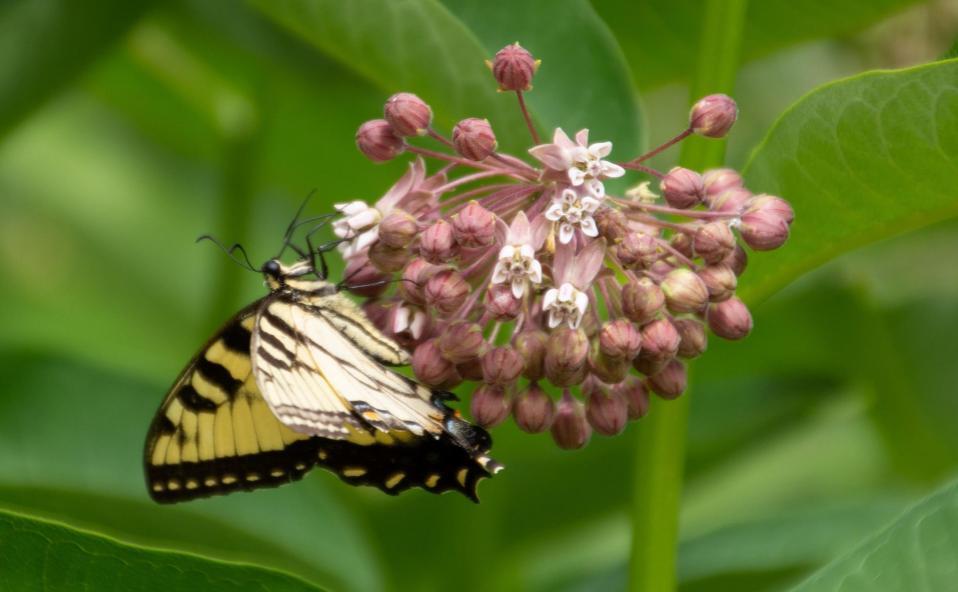Adkins Arboretum has been awarded a Maryland Humanities grant to develop an Indigenous Peoples Perspective program in partnership with Washington College’s Eastern Shore Food Lab (ESFL). The program will employ digital resources in the forms of web profiles, videos and self-guided activities to explore the importance of 21 native plants to the food, craftwork and medicinal traditions of indigenous peoples of the Chesapeake region.

Milkweed (Photo credit: Kellen McCluskey/Adkins Arboretum)
A native garden and plant preserve located in Caroline County, Adkins Arboretum is the only public garden that focuses solely on plants native to the mid-Atlantic coastal plain. Its 400 acres of diverse habitat support more than 600 species of native shrubs, trees, wildflowers, grasses, ferns and vines.
The ESFL at Washington College optimizes personal and community health by drawing upon the dietary past that built us as a species. The Food Lab works to strengthen the ties between environment, society, family and ourselves while addressing issues of sustainability, food access, and dietary and social health. The Arboretum and ESFL have partnered previously to offer foraging walks.
The project seeks to encourage a paradigm shift from land as capital to land as sacred teacher, healer and sustainer. The Arboretum is located in the traditional homeland of the Choptank People, Algonquin-speaking Woodland Indians who lived along the lower Choptank River basin. Before European settlers arrived in the early 1600s, there were approximately 20,000 Choptank living on the Eastern Shore. Less than 150 years later, these native people were driven to near-extinction by illness, fighting and forced migration.
According to the Chesapeake Bay Program, “Tens of thousands of people who identify as American Indian live in the Chesapeake region today. Some belong to state- or federally recognized tribes, others belong to groups with a shared heritage and many others celebrate their ancestry through their immediate family.”
Native American expert Daniel “Firehawk” Abbott will serve as a consultant on the project. A member of the Eastern Shore’s Nanticoke People, Abbott is the principal Native American prehistoric/historic interpreter at Historic Jamestowne Island. While serving on the Board of Directors of the Nanticoke Historic Preservation Alliance, he designed and guided the construction of the Chicone Village at Handsell in Dorchester County. He has partnered with the Arboretum at festivals and on foraging walks.
Through the Indigenous Peoples Perspective project, Adkins Arboretum and ESFL will strive to honor the wisdom of native peoples and their unique relationship with nature by sharing their ecological perspectives, history and traditions. Ultimately, the project seeks to inspire a collective responsibility to shape our future by caring for the land that supports us.
This project was made possible by a grant from Maryland Humanities, with funding received from the Maryland Historical Trust in the Maryland Department of Planning. Maryland Humanities’ Grant Programs is also supported by the National Endowment for the Humanities and private funders. Any views, findings, conclusions or recommendations expressed in this program do not necessarily represent those of Maryland Humanities, Maryland Historical Trust, Maryland Department of Planning or National Endowment for the Humanities.
Adkins Arboretum is a 400-acre native garden and preserve at the headwaters of the Tuckahoe Creek in Caroline County. For more information, visit adkinsarboretum.org or call 410-634-2847, ext. 0.



Write a Letter to the Editor on this Article
We encourage readers to offer their point of view on this article by submitting the following form. Editing is sometimes necessary and is done at the discretion of the editorial staff.